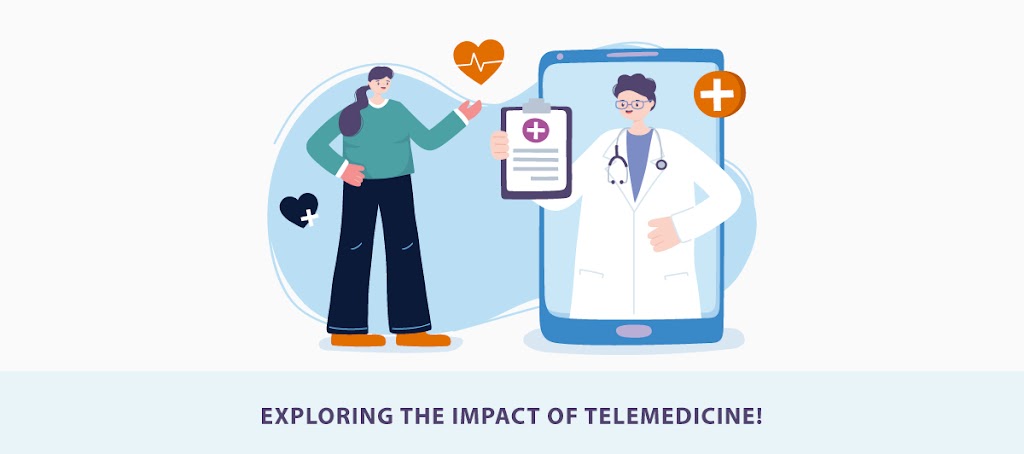Introduction
In the rapidly evolving field of medicine, precision medicine and personalized healthcare have emerged as groundbreaking approaches that have the potential to revolutionize patient care. With advancements in technology and our understanding of genetics, medical professionals are now able to tailor treatments and interventions specifically to each individual’s unique characteristics. This article delves deeper into the concepts of precision medicine and personalized healthcare, exploring their impact on the field of medicine and how they are shaping the future of healthcare.
What is Precision Medicine?
Precision medicine, also known as personalized medicine, is an innovative healthcare approach that takes into account the individual variability in genes, environment, and lifestyle for each person. It recognizes that not all patients respond to treatments in the same way and aims to optimize medical decisions and interventions based on an individual’s unique characteristics and needs.
The Role of Genetics
Genetics plays a vital role in precision medicine. By studying an individual’s genetic makeup, healthcare professionals can identify genetic variations that might influence their susceptibility to certain diseases or determine their response to specific treatments. This information allows for more informed decisions about the most suitable and effective treatments for each patient, resulting in improved outcomes and reduced risks of adverse effects.
Advantages of Precision Medicine
Precision medicine offers numerous advantages over traditional approaches to healthcare:
- Improved Treatment Efficacy: Tailoring treatments to an individual’s genetic profile can significantly enhance treatment effectiveness and reduce the likelihood of adverse effects.
- Enhanced Disease Prevention: The ability to identify genetic predispositions to certain diseases enables proactive measures to prevent or mitigate their development, leading to healthier lives and reduced healthcare costs.
- Optimized Drug Development: Precision medicine facilitates the identification of specific patient populations that are more likely to respond positively to new medications. This approach can accelerate the drug development process, making new drugs available to patients more swiftly.
- Individualized Approaches: Precision medicine recognizes that each person is unique and tailors treatment plans to their specific needs, resulting in more personalized and effective care.
Challenges and Limitations
While precision medicine holds great promise, it is not without challenges and limitations:
- Genetic Variability: Human genetics are complex, and not all genetic variations have a clear association with diseases or treatment response. Continued research is needed to better understand the intricate relationship between genetics and health.
- Data Privacy and Security: Precision medicine relies heavily on the collection and analysis of personal genetic information, raising concerns about data privacy and security. Ensuring strict privacy measures and regulations are in place is crucial to protect patients’ sensitive information.
- Cost and Accessibility: Implementing precision medicine requires advanced technologies, specialized expertise, and extensive resources. This can make it costly and less accessible, particularly in certain regions or healthcare systems with limited resources.
- Ethical Considerations: The ethical implications of precision medicine, such as the appropriate use and interpretation of genetic data, need to be carefully addressed to uphold patient autonomy and ensure equitable access to care.
Applications in Healthcare
Precision medicine has a broad range of applications across various areas of healthcare, including:
- Cancer Treatment: Precision medicine allows for targeted therapies based on specific genetic mutations present in a patient’s tumor. This approach improves treatment outcomes, reduces side effects, and potentially prolongs survival.
- Pharmacogenomics: Pharmacogenomics is the study of how a person’s genes affect their response to drugs. Tailoring drug prescriptions based on an individual’s genetic profile allows for personalized medication plans, resulting in safer and more effective treatments.
- Preventive Medicine: Identifying genetic markers for certain diseases can help individuals take proactive measures to prevent or detect conditions early. This proactive approach to healthcare enables interventions before the onset of symptoms, leading to better health outcomes.
- Neurological Disorders: Precision medicine offers exciting possibilities in the diagnosis and treatment of neurological disorders such as Alzheimer’s disease and Parkinson’s disease. By understanding the genetic and molecular underpinnings of these conditions, researchers are developing targeted therapies for better management and potential cures.
The Future of Precision Medicine
The field of precision medicine is rapidly evolving, and its future looks incredibly promising. Continued advancements in technology, the accumulation of more extensive genetic databases, and ongoing research will further refine and expand the applications of precision medicine. As our understanding of genetics deepens, precision medicine has the potential to become a standard approach in healthcare, transforming the way diseases are diagnosed, treated, and prevented.
Conclusion
Precision medicine and personalized healthcare are revolutionizing the field of medicine by prioritizing individual differences in genetics, environment, and lifestyle. Through tailored treatments and interventions, precision medicine offers the promise of improved treatment efficacy, enhanced disease prevention, and optimized drug development. Despite challenges and limitations, precision medicine has the potential to reshape healthcare, providing patients with more personalized, effective, and efficient care. As research and technology progress, the future of precision medicine looks brighter than ever, offering hope for better health outcomes and a healthier future for all.

